Astrology, an ancient practice rooted in the study of celestial bodies and their influence on human lives, offers a fascinating insight into the complex tapestry of our personalities and life experiences. At the heart of an astrological chart lies the Ascendant, a pivotal point that holds immense importance in understanding the individual’s true self and the path their life is destined to take. The Ascendant, also known as the Rising Sign, not only affects physical appearance and first impressions but also shapes personality traits, determines the chart ruler, and influences life experiences. In this comprehensive guide, we delve into the significance of the Ascendant in astrological chart interpretation, exploring how it impacts personal relationships, professional aspirations, and its relationship with other astrological elements. Prepare to unravel the mysteries of the Ascendant and gain a deeper understanding of the intricate workings of the cosmos in shaping our lives.
Contents
- What is the Ascendant?
- The Role of the Ascendant in Chart Interpretation
- Interpreting the Ascendant and Its Aspects
- Factors Affecting the Ascendant
- Ascendant and Personal Relationships
- Ascendant and Professional Life
- The Ascendant’s Relationship with Other Astrological Elements
- Conclusion
-
Frequently Asked Questions
- 1. How does the Ascendant differ from the Sun sign?
- 2. Can the Ascendant change throughout a person’s life?
- 3. How does the Ascendant affect relationship compatibility?
- 4. Can two people with the same Ascendant have completely different personalities?
- 5. How does the Ascendant influence career choices?
- 6. Can the Ascendant determine physical appearance?
- 7. Does everyone know their Ascendant?
- 8. Can the Ascendant change the way others perceive you?
- 9. Does the Ascendant have any influence on health or well-being?
- 10. Can the Ascendant override other astrological placements?
- References
-
Frequently Asked Questions
- 1. How does the Ascendant affect physical appearance?
- 2. Can the Ascendant reveal traits that are not present in the Sun sign?
- 3. Why is determining the Chart Ruler important?
- 4. How does the Ascendant shape life experiences?
- 5. What does it mean to understand the sign on the Ascendant?
- 6. How do aspects to the Ascendant affect personality?
- 7. How does the time of birth affect the Ascendant?
- 8. What role does the location of birth play in determining the Ascendant?
- 9. What is a day/night chart, and how does it relate to the Ascendant?
- 10. Can the Ascendant affect compatibility in personal relationships?
- References
- Read More
What is the Ascendant?

The Ascendant, also referred to as the Rising Sign, is a fundamental component of an astrological birth chart. It represents the zodiac sign that was on the eastern horizon at the exact moment of an individual’s birth. The Ascendant is determined by the time and location of birth and is considered a crucial point for understanding a person’s unique characteristics and life experiences.
The Ascendant acts as a mask or persona that individuals present to the world. It influences their physical appearance, demeanor, and first impressions made on others. Just as the sun rises at the beginning of each day, the Ascendant symbolizes the starting point of a person’s journey through life.
On a deeper level, the Ascendant holds the key to an individual’s personality traits and individuality. It reveals the qualities, attributes, and energies they embody. For example, someone with an Aries Ascendant may project confidence, assertiveness, and a pioneering spirit, while a Cancer Ascendant may exude nurturing qualities, sensitivity, and emotional depth.
Additionally, the Ascendant plays a crucial role in determining the chart ruler, which is the ruling planet of the individual’s birth chart. The ruling planet has a significant influence on the person’s life path and can provide insights into their strengths, challenges, and overall purpose.
The Ascendant shapes an individual’s life experiences and path. It influences the opportunities and challenges that come their way, as well as the environments and situations they attract. The Ascendant sets the stage for the various planetary placements within the birth chart, providing a framework for their expression and integration into the individual’s life.
The Ascendant is a vital factor in astrological chart interpretation, representing the mask we wear, the essence of our personality, and the starting point of our life’s journey. Understanding the Ascendant can provide deep insights into our physical appearance, first impressions, personality traits, and life experiences. It serves as the gateway to unlocking the mysteries of our astrological chart, allowing us to navigate our paths with greater awareness and purpose.
The Role of the Ascendant in Chart Interpretation
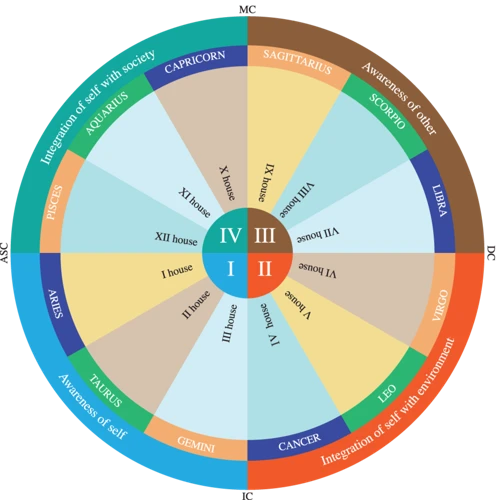
The Ascendant plays a multifaceted role in the interpretation of an astrological chart, offering valuable insights into the individual’s life and personality. It serves as a lens through which we can understand physical appearance, first impressions, and the initial energy projected to the world. The Ascendant determines the ruling planet of the chart, which holds significant sway over the person’s life path and purpose. The Ascendant also shapes life experiences and influences how other planetary placements within the chart are expressed and integrated into the individual’s journey. By analyzing the Ascendant and its interactions with other elements in the chart, astrologers gain a deeper understanding of the individual’s unique characteristics and the opportunities and challenges they may encounter. Exploring the Ascendant’s influence allows us to unravel the intricate tapestry of the individual’s life, providing valuable guidance and insights along the way.
1. Influence on Physical Appearance and First Impressions
Influence on Physical Appearance and First Impressions: The Ascendant holds a significant influence on a person’s physical appearance and the impressions they make upon others. The energies of the zodiac sign that resides on the Ascendant manifest through the individual’s external presentation and demeanor. For example, an individual with a Leo Ascendant may possess a regal, confident, and charismatic aura, while someone with a Pisces Ascendant may exhibit a gentle, dreamy, and ethereal quality.
Not only does the Ascendant affect the physical features, such as facial structure, body type, and style, but it also impacts the overall energy and vibe that others perceive. People with fire sign Ascendants (Aries, Leo, Sagittarius) are often seen as dynamic, energetic, and assertive, while those with earth sign Ascendants (Taurus, Virgo, Capricorn) may be viewed as grounded, practical, and dependable.
The Ascendant plays a crucial role in shaping the first impressions individuals make on others. It governs the initial energy people project, which can greatly influence how others perceive and respond to them. A person with a confident and vibrant Ascendant may leave a lasting impression of enthusiasm and self-assuredness, while an Ascendant with a more reserved and thoughtful nature might convey a sense of introspection and depth.
It’s important to note that while the Ascendant has a significant impact on physical appearance and first impressions, other factors in the birth chart, such as the Sun sign and Moon sign, also contribute to an individual’s overall presence. The Ascendant acts as a mask that filters and reflects the core energies of the individual’s entire chart, creating a unique blend that manifests in their physicality and how they are perceived by others.
Understanding the influence of the Ascendant on physical appearance and first impressions can provide valuable insights into our self-presentation and how we are perceived by the world. By embracing and working with the qualities of our Ascendant, we can enhance our ability to make a positive impact on others and feel more aligned with our authentic selves.
2. Impact on Personality Traits and Individuality
The Ascendant, or Rising Sign, in an astrological chart plays a significant role in shaping an individual’s personality traits and individuality. It provides valuable insights into the qualities and energies they embody. When analyzing the Ascendant, astrologers consider the zodiac sign on the Ascendant and its ruling planet to gain a deeper understanding of a person’s unique characteristics.
The zodiac sign on the Ascendant influences how individuals present themselves to the world. It adds a distinct flavor to their personality and can color their physical appearance, behavior, and overall demeanor. For example, someone with a Leo Ascendant may radiate confidence, charisma, and leadership qualities. Their presence can be bold and attention-grabbing, making them stand out in a crowd. On the other hand, an individual with a Pisces Ascendant might exude a gentle, dreamy, and empathetic aura, drawing others towards their compassionate nature.
Additionally, the ruling planet of the Ascendant holds sway over the individual’s personality traits. The planet’s qualities and characteristics blend with those of the Ascendant, adding depth and nuance to their persona. For instance, if someone has a Libra Ascendant ruled by Venus, they may possess a natural sense of harmony, diplomacy, and artistic flair. Alternatively, a Scorpio Ascendant ruled by Mars may manifest as intensity, determination, and a penchant for diving deep into the mysteries of life.
The Ascendant’s influence on personality goes beyond surface-level traits. It helps shape an individual’s overall sense of self and identity. The combination of the zodiac sign on the Ascendant and its ruling planet provides valuable insights into an individual’s inherent strengths, challenges, and potential growth areas. By understanding their Ascendant, individuals can embrace and nurture their unique qualities and navigate life with a greater sense of self-awareness and authenticity.
The Ascendant’s impact on personality traits and individuality is profound. It showcases how individuals project themselves to the world, influencing their physical appearance, behavior, and overall demeanor. The zodiac sign on the Ascendant and its ruling planet combine to create a unique blend of characteristics that contribute to an individual’s persona. Understanding the Ascendant allows individuals to embrace their true selves and live in alignment with their inherent energies and potentials.
3. Determining the Chart Ruler
Determining the Chart Ruler is a crucial step in astrological chart interpretation, and the Ascendant plays a significant role in this process. The chart ruler, also known as the ruling planet, is the planet that rules the Ascendant sign and has a powerful influence over the individual’s life path and overall personality.
To determine the chart ruler, the astrologer looks at the sign on the Ascendant. Each zodiac sign is ruled by a different planet, and that planet becomes the chart ruler for the individual. For example, if the Ascendant is in Aries, Mars becomes the ruling planet and therefore the chart ruler.
The chart ruler provides valuable insights into the person’s character, behavior, and life experiences. It sets the tone for how the individual expresses themselves and navigates through life. The qualities and energies associated with the ruling planet permeate various aspects of the individual’s life, shaping their personality and influencing their actions.
Understanding the chart ruler helps astrologers gain a deeper understanding of the individual’s core motivations, desires, and challenges. It sheds light on their personal strengths and areas where they may face obstacles. By examining the placement and aspects of the ruling planet within the birth chart, astrologers can provide guidance on how to work with the energies of the chart ruler to maximize personal growth and fulfillment.
In essence, the chart ruler acts as a guiding force throughout the individual’s life, influencing their decisions, relationships, and overall life path. It offers valuable insights into the specific areas of focus and themes that will play a significant role in their journey.
By determining the chart ruler through the Ascendant, astrologers can gain a deeper understanding of the unique qualities and potentials that an individual possesses. The chart ruler provides a valuable framework for interpreting the birth chart and offers meaningful insights into the individual’s life purpose and path of self-discovery. To fully comprehend the chart ruler’s impact, it is essential to analyze its placement, aspects, and overall significance within the birth chart. The chart ruler serves as a powerful guide, unlocking the hidden potentials and possibilities within each individual’s astrological blueprint.
4. Shaping Life Experiences and Path
The Ascendant plays a vital role in shaping an individual’s life experiences and path, acting as a guiding force throughout their journey. This aspect of the astrological chart determines the lens through which individuals perceive and interact with the world around them.
The Ascendant sets the tone for the various planetary energies within the birth chart, influencing how they manifest in a person’s life. It can determine the overall direction and themes of their experiences, as well as the kind of opportunities and challenges they encounter.
Consider a person with a Leo Ascendant. With the charismatic and radiant energy of Leo influencing their outer persona, they may naturally gravitate towards leadership roles, creative endeavors, or positions that allow them to be in the spotlight. Their life experiences may be colored by themes of self-expression, personal power, and the need for recognition.
On the other hand, an individual with a Scorpio Ascendant may have a more intense and transformative path. Their experiences could involve deep emotional connections, power dynamics, and a desire for profound understanding. They may be drawn to careers or situations that involve research, psychology, or investigative work.
The Ascendant not only influences the external circumstances individuals attract but also shapes their internal landscape. It can impact how they perceive themselves and their overall sense of identity. The Ascendant’s influence on one’s personality can determine the traits they emphasize or project to the world.
For example, someone with a Libra Ascendant may prioritize harmony, diplomacy, and connection in their interactions with others. This can lead them to seek out relationships and partnership dynamics that reflect these values, possibly guiding them towards careers in areas such as counseling, mediation, or artistry.
It is important to note that, while the Ascendant plays a significant role, it does not operate in isolation. The interplay between the Ascendant and other elements of the chart, such as the planets and their aspects, further refines the nuances of one’s life experiences and path.
The Ascendant acts as a guidepost in navigating life’s journey, shaping an individual’s experiences, and influencing the direction they take. By understanding the Ascendant’s influence, individuals can gain deeper insights into the themes, opportunities, and challenges that may arise throughout their lives. Embracing and aligning with the energies of the Ascendant can lead to a greater sense of authenticity, purpose, and fulfillment.
Interpreting the Ascendant and Its Aspects
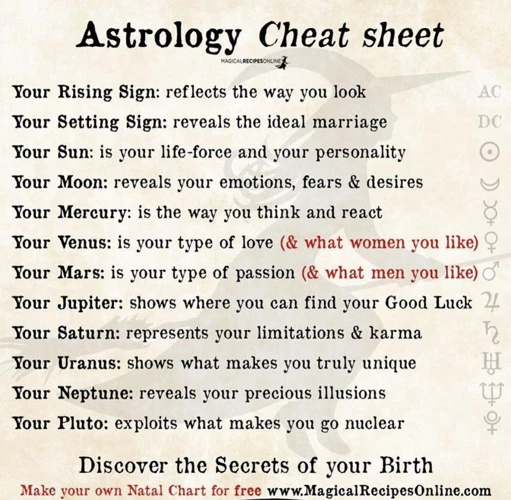
Understanding and interpreting the Ascendant and its aspects is a crucial step in the complex process of astrological chart analysis. The Ascendant represents the lens through which an individual views the world and how they navigate their life experiences. Examining the sign on the Ascendant provides valuable insights into their personality, appearance, and first impressions. Each zodiac sign carries unique qualities and characteristics that color the individual’s outlook and interactions with others. Additionally, analyzing the aspects to the Ascendant sheds light on how other planets interact with this important point in the chart, influencing an individual’s temperament, behavior, and life path. These aspects reveal the dynamic interplay between different planetary energies and how they shape the overall expression of the individual. By delving into the interpretation of the Ascendant and its aspects, astrologers gain a deeper understanding of an individual’s core identity, motivations, and potential life trajectory. This knowledge can empower individuals to make conscious choices and navigate their lives with greater self-awareness and alignment with their true selves.
1. Understanding the Sign on the Ascendant
Understanding the sign on the Ascendant is a crucial step in astrological chart interpretation. The sign on the Ascendant represents the energy that individuals project to the outside world and the impression they make on others. It reveals the qualities and characteristics that are most evident in their personality and behavior.
Each zodiac sign brings its unique attributes and traits to the Ascendant, shaping how individuals interact with the world around them. For instance, if someone has a Taurus Ascendant, they may exude stability, reliability, and a practical approach to life. On the other hand, a Leo Ascendant may radiate confidence, charisma, and a natural flair for leadership.
To understand the sign on the Ascendant, it is essential to explore its ruling planet, element, and modality. These factors further clarify and enhance the expression of the Ascendant’s energy. The ruling planet of the sign on the Ascendant provides insights into the dominant themes and areas of focus in an individual’s life. For example, if Aries is the sign on the Ascendant, Mars (the ruling planet of Aries) will bring qualities of courage, assertiveness, and a desire to take action.
The element of the Ascendant sign reveals the individual’s predominant energy and temperament. Fire signs (Aries, Leo, and Sagittarius) bring passion, enthusiasm, and a pioneering spirit to the Ascendant. Earth signs (Taurus, Virgo, and Capricorn) manifest as grounded, practical, and reliable individuals. Air signs (Gemini, Libra, and Aquarius) exhibit intellectual curiosity, communication skills, and sociability, while water signs (Cancer, Scorpio, and Pisces) reflect emotional depth, intuition, and sensitivity.
The modality of the Ascendant sign showcases the individual’s approach to life and dealing with challenges. Cardinal signs (Aries, Cancer, Libra, and Capricorn) embody initiation, leadership, and a drive for change. Fixed signs (Taurus, Leo, Scorpio, and Aquarius) encompass stability, determination, and a focus on maintaining the status quo. Mutable signs (Gemini, Virgo, Sagittarius, and Pisces) represent adaptability, flexibility, and a willingness to go with the flow.
Understanding the sign on the Ascendant provides valuable insights into the dominant energies and qualities individuals portray to the world. It helps astrologers and individuals themselves to uncover the key themes, strengths, and potentials in their lives. By exploring the ruling planet, element, and modality of the Ascendant sign, we gain a deeper understanding of how these energies shape an individual’s personality, behaviors, and their journey through life.
2. Analyzing Aspects to the Ascendant
Analyzing aspects to the Ascendant is a crucial step in astrological chart interpretation, as it provides valuable information about how the Ascendant interacts with other celestial bodies in the chart. Aspects are the angular relationships between planets, points, and angles, and they have a significant impact on the overall energy and expression of the Ascendant.
When analyzing aspects to the Ascendant, astrologers consider both the major and minor aspects. Major aspects, such as conjunctions, oppositions, squares, trines, and sextiles, hold the most significance and can greatly influence how the Ascendant manifests in an individual’s life.
A conjunction occurs when a celestial body aligns with the Ascendant, blending its energy with the individual’s outward expression. This can amplify the traits associated with the Ascendant and bring them more prominently into the person’s personality and life experiences. For example, if someone has a conjunction between Mars and their Ascendant, they may project assertiveness, courage, and a strong desire for independence.
Oppositions occur when a celestial body is directly across from the Ascendant. This can create a sense of tension or polarization between the energy of the Ascendant and the opposing planet. It may manifest as a struggle between expressing one’s own identity and fulfilling the needs represented by the opposing planet.
Squares represent a challenging aspect where there is tension and conflict between the Ascendant and the planet involved. This can create friction and may indicate struggles in reconciling the energies represented by the Ascendant and the square planet.
Trines and sextiles, on the other hand, indicate harmonious aspects between the Ascendant and other celestial bodies. These aspects can bring ease, flow, and positive integration of the energies, allowing the individual to express the Ascendant’s qualities with greater ease and grace.
Analyzing aspects to the Ascendant provides a deeper understanding of how the energies of different planets interact with the individual’s outward expression and personal identity. It reveals the dynamics and potentials for growth, challenges, and harmonious integration. By considering the aspects, astrologers can gain valuable insights into an individual’s personality, relationships, and life experiences.
Analyzing aspects to the Ascendant is an essential component of astrological chart interpretation. It helps astrologers understand how the energy of the Ascendant interacts with other celestial bodies, shedding light on the dynamics and potentials within an individual’s life. By delving into the aspects, astrologers can uncover the unique nuances and complexities of an individual’s chart, providing deeper insights into their personality and life journey.
Factors Affecting the Ascendant
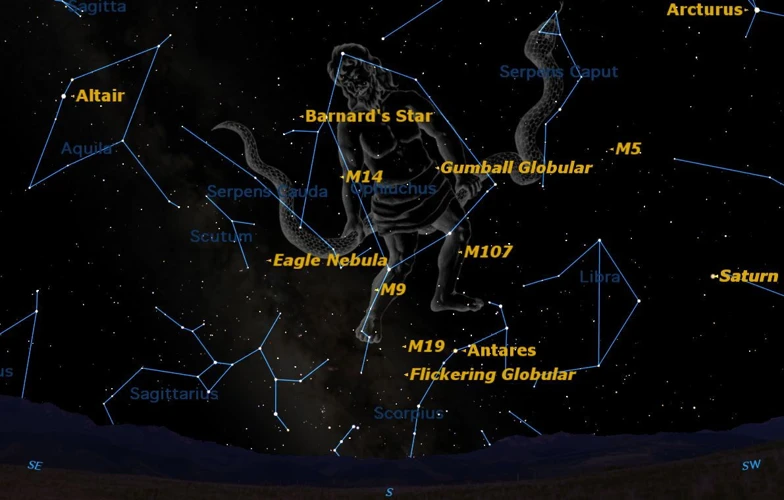
Several factors come into play when determining an individual’s Ascendant in an astrological birth chart. The first factor is the time of birth, which determines the zodiac sign that was rising on the eastern horizon at that specific moment. The Ascendant changes approximately every two hours, so a slight variation in birth time can lead to a different Ascendant sign. The second factor is the location of birth, as the latitude and longitude coordinates affect the exact degree and sign of the Ascendant. Different regions of the world have different Ascendant signs and degrees at a given time. Lastly, whether the birth occurs during the day or night plays a role in the chart interpretation. A day chart is when the Sun is above the horizon at birth, while a night chart is when the Sun is below the horizon. These factors combine to shape the Ascendant and provide unique insights into an individual’s personality traits, physical appearance, and life experiences.
1. Time of Birth
The time of birth is a crucial factor in determining the Ascendant in an astrological chart. The Ascendant shifts approximately one degree every four minutes, meaning that even a slight difference in birth time can result in a different Rising Sign and a unique interpretation of the individual’s chart.
The exact moment of birth sets the stage for the formation of the Ascendant and its corresponding zodiac sign. The Ascendant changes as the Earth rotates, causing the different signs to ascend on the eastern horizon at different times of the day. Knowing the precise time of birth is essential for accurate Ascendant calculation.
The time of birth not only determines the specific zodiac sign of the Ascendant but also influences the degree and any aspects made by the Ascendant to other planets in the birth chart. These aspects can provide additional insights into the individual’s character, experiences, and potential challenges they may face.
It’s worth noting that the Ascendant is most accurately determined using the Placidus system, which takes into account the birth time, date, and location. This system divides the birth chart into twelve houses, each representing different areas of life, and aligns them with the zodiac signs.
The time of birth plays a critical role in establishing the accurate Ascendant in an astrological chart. It determines the zodiac sign, degree, and aspects made by the Ascendant, providing valuable information in interpreting an individual’s astrological profile. To gain a comprehensive understanding of oneself through astrology, it is essential to know the precise time of birth to unravel the mysteries held within the Ascendant’s influence.
2. Location of Birth
The location of birth is a crucial factor that influences the Ascendant in an astrological birth chart. The Ascendant is calculated based on the specific coordinates of the place where an individual is born, such as latitude and longitude. The geographical location plays a significant role in determining the sign that rises on the eastern horizon at the time of birth.
The planetary positions in astrology are based on the Earth’s position in relation to the rest of the celestial bodies. The longitude and latitude of the birthplace directly affect the positioning of the Ascendant. For instance, someone born in New York City and someone born in Tokyo will have different Ascendants due to their different geographic locations.
The location of birth not only affects the Ascendant but also influences the entire astrological chart. Each region on Earth has a unique energy and vibration that can subtly impact an individual’s life path and experiences. For example, someone with a Leo Ascendant born in a bustling city may have a different expression of their Leo qualities compared to someone with the same Ascendant born in a small, rural town.
The geographical location also plays a role in the astrological houses within the birth chart. The houses represent different areas of life, such as relationships, career, and home environment. The location of birth determines the size and positioning of these houses, which in turn influences how the energies of the planets and signs interact within each area of life.
The location of birth is an essential factor in astrology that affects the Ascendant and the overall birth chart. It determines the specific sign that rises on the eastern horizon at the time of birth and influences the expression of the Ascendant’s qualities. Additionally, the geographic location contributes to the positioning and size of the astrological houses, shaping an individual’s life experiences and path based on the unique energy and vibration of their birthplace. Understanding the impact of location in astrology provides a more comprehensive view of an individual’s chart interpretation and the intricate interplay of celestial energies.
3. Day/Night Chart
In astrology, the concept of a day/night chart refers to the position of the Sun in relation to the Ascendant at the time of birth. It distinguishes between charts where the Sun is above or below the horizon, indicating whether the birth occurred during daylight or nighttime hours. This classification has significant implications for chart interpretation and can shed light on an individual’s overall disposition and life experiences.
In a day chart, the Sun is located above the Ascendant, which means the birth occurred during daylight hours. Day charts generally signify a more outgoing and extroverted nature. Individuals with a day chart often exhibit a greater focus on external interactions, social engagement, and a desire to shine in the public sphere. Their primary life lessons may revolve around self-expression, leadership, and forging their unique identity in the world. A significant aspect of a day chart is that the Sun tends to hold more prominence in terms of its influence on the individual’s personality and life path.
On the other hand, a night chart represents a birth that took place during the nighttime hours when the Sun is positioned below the Ascendant. Night charts tend to signify a more introverted and introspective nature, placing emphasis on inner growth and self-reflection. These individuals may have a heightened sensitivity to their surroundings and tend to engage in deeper emotional connections with others. Life lessons for night chart individuals may encompass themes of self-discovery, emotional healing, and nurturing relationships.
It’s important to note that the classification of a day or night chart goes beyond the actual time of birth. The exact time of sunrise and sunset on the day of birth, as well as the geographical location of birth, determines whether a chart falls under the category of day or night.
Understanding whether a birth chart falls into the category of day or night can provide valuable insights into an individual’s overall disposition and the focus of their life experiences. The Sun’s position in relation to the Ascendant illuminates the energetic backdrop against which all other planetary influences unfold. It is yet another layer of complexity to consider when interpreting an astrological chart and gaining a more nuanced understanding of the individual’s unique qualities and life path.
Ascendant and Personal Relationships
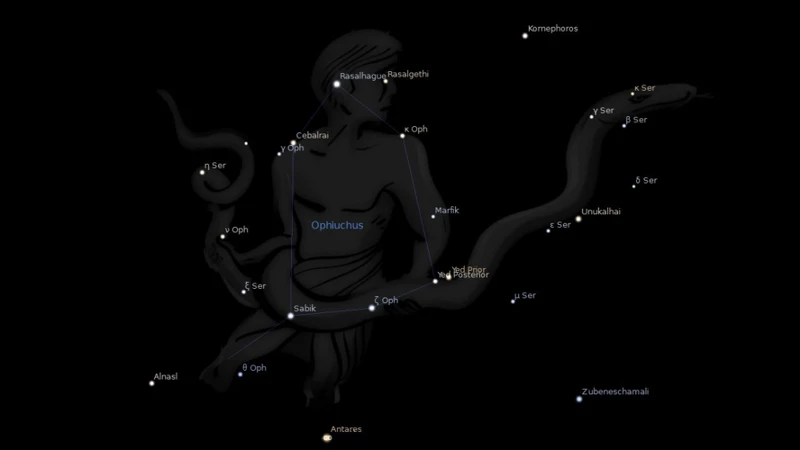
The Ascendant, with its ability to shape physical appearance and first impressions, plays a significant role in personal relationships. The zodiac sign on our Ascendant influences compatibility with other Ascendants and impacts the initial attraction and first impressions we make on others. Certain Ascendant combinations may naturally harmonize, while others may present challenges that require understanding and compromise. Additionally, the Ascendant influences relationship dynamics, shaping how we express ourselves, communicate, and navigate the intricacies of partnerships. It is worth exploring how our Ascendant interacts with the Ascendants of those around us, as it can provide valuable insights into the dynamics and potential strengths of our personal relationships.
1. Compatibility with Other Ascendants
When exploring the compatibility between different Ascendants in astrology, we delve into the fascinating dynamics that arise when two individuals come together. The Ascendant plays a crucial role in shaping our outer persona and the way we interact with the world, making it a key factor in relationship compatibility. Each Ascendant carries distinct qualities and energies, and compatibility between Ascendants can determine the ease or challenges within a relationship.
To assess compatibility between Ascendants, it is important to examine the elements and qualities of each sign involved. For example, fire signs such as Aries, Leo, and Sagittarius tend to have a natural compatibility with other fire signs due to their shared passion, enthusiasm, and energetic nature. The fire element creates a harmonious synergy, sparking excitement and a sense of adventure in the relationship.
On the other hand, fire signs may encounter challenges with earth signs like Taurus, Virgo, and Capricorn. Earth signs value stability, practicality, and groundedness, which can clash with the fiery and impulsive nature of fire signs. However, with mutual understanding and compromise, these differences can be overcome, leading to a balanced and complementary partnership.
Air signs such as Gemini, Libra, and Aquarius often establish a strong intellectual connection with other air signs. They thrive on mental stimulation, communication, and social interaction. This shared affinity for mental pursuits can create a stimulating and harmonious bond. However, air signs may find it challenging to connect with water signs like Cancer, Scorpio, and Pisces, who operate on an emotional and intuitive level. It requires conscious effort to bridge the gap between logical thinking and emotional sensitivity, but when achieved, it can lead to a deeply fulfilling and complementary relationship.
Water signs tend to have a natural affinity for each other, as they operate on an emotional and intuitive level. Signs such as Cancer, Scorpio, and Pisces share a deep emotional sensitivity and compassion, which creates a profound understanding and connection. However, water signs may experience difficulties when in relationships with air signs, as air signs prioritize independence and rationality over emotional depth. Communication and understanding each other’s needs are essential for these relationships to thrive.
Understanding the compatibility between Ascendants can provide insight into the dynamics of personal relationships. It is important to remember that compatibility is not solely determined by the Ascendant but also influenced by other factors in the birth chart. Each relationship is unique and requires the willingness to embrace differences and work towards harmony and understanding. By exploring the compatibility between Ascendants, we gain a deeper understanding of the dynamics at play and can navigate our personal relationships with greater awareness and compassion.
2. Influencing Attraction and First Impressions
The Ascendant plays a significant role in influencing attraction and first impressions when it comes to personal relationships. It is the mask that we present to the world, and this initial impression can greatly impact how others perceive and connect with us. People often gravitate towards those who possess qualities and characteristics that complement or balance their own. With the Ascendant influencing physical appearance and demeanor, it can create an instant magnetism or spark of attraction between individuals.
The Ascendant’s influence on attraction can manifest in various ways depending on the zodiac sign it falls under. For example, a person with a Taurus Ascendant may exude a sense of stability, sensuality, and groundedness that can be highly appealing to others. On the other hand, someone with a Sagittarius Ascendant may project an adventurous, optimistic, and free-spirited energy that draws people in.
First impressions are crucial in forming the foundation of any relationship, whether romantic or platonic. The Ascendant, with its role in shaping physical appearance and demeanor, can leave a lasting impression on others. It sets the tone for initial interactions and can determine how others perceive and relate to us.
The Ascendant can also influence the way we approach relationships. For instance, someone with a Libra Ascendant, known for their charm, diplomacy, and desire for harmony, may prioritize harmony and balanced partnerships. On the other hand, an Aries Ascendant, known for their assertiveness and independence, may seek relationships that allow for personal autonomy and individual growth.
It’s important to note that while the Ascendant can create an initial attraction and impression, the full complexity of an individual’s personality and compatibility is determined by the entire astrological chart. Other factors such as the Sun sign, Moon sign, and planetary aspects contribute to the overall dynamics of a relationship.
The Ascendant holds a significant influence in shaping attraction and first impressions. By understanding the qualities and energies associated with our Ascendant sign, we can gain insights into the type of individuals who are naturally drawn to us and the initial impressions we make on others. While the Ascendant sets the stage for these connections, it is important to remember that a deeper understanding of an individual’s birth chart is necessary to fully comprehend the complexities of personal relationships.
3. Impact on Relationship Dynamics
The Ascendant, as a significant factor in astrological chart interpretation, also has a profound impact on relationship dynamics. The Ascendant sign of an individual influences how they present themselves in relationships and the qualities they seek in a partner. It plays a crucial role in compatibility, attraction, and the overall dynamics between two individuals.
When analyzing relationship dynamics, it is important to consider the Ascendant sign of both partners. The Ascendant sign represents the external impression and the initial energy exchanged between individuals. For example, a person with a Leo Ascendant may radiate confidence, warmth, and a desire for attention, while someone with a Virgo Ascendant may exhibit practicality, attention to detail, and a reserved nature.
The interaction between two Ascendant signs determines the initial spark of attraction and compatibility. Complementary Ascendant signs may create a natural harmony, while conflicting or challenging Ascendant signs can lead to dynamic and potentially intense relationships. For instance, a Taurus Ascendant individual may be drawn to a Pisces Ascendant person’s compassionate and dreamy nature, while a Sagittarius Ascendant individual might find themselves attracted to the adventurous and lively spirit of a Gemini Ascendant person.
The Ascendant sign also influences the overall relationship dynamics and how individuals express themselves within the partnership. It can affect communication styles, emotional needs, and the way conflicts are resolved. For instance, an Aquarius Ascendant individual may prioritize intellectual connection and independent freedom in their relationships, while a Cancer Ascendant individual may seek emotional security and nurturance.
Additionally, the planetary aspects to the Ascendant within the birth chart can provide further insights into relationship dynamics. Positive aspects can bring harmony, understanding, and mutual support, while challenging aspects may lead to power struggles, clashes, or unresolved conflicts.
Understanding the impact of the Ascendant on relationship dynamics allows individuals to navigate their partnerships with greater awareness and understanding. It helps in recognizing and appreciating the unique qualities and needs of both partners, fostering healthier and more fulfilling connections. By embracing the strengths and challenges associated with their Ascendant sign, individuals can create more harmonious and balanced relationships.
Ascendant and Professional Life
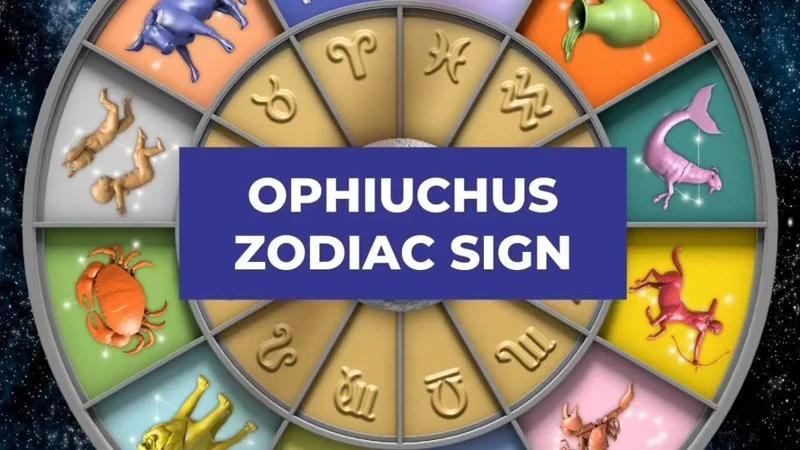
In the realm of professional life, the Ascendant plays a significant role in guiding career paths and shaping one’s ambitions and goals. The Ascendant represents the mask we wear when interacting with the world, and it influences how others perceive us in professional settings. Different Ascendants have distinct qualities and approaches to work, which can impact the fields and roles that align best with an individual’s strengths and interests. For example, a Capricorn Ascendant may thrive in structured and hierarchical environments, while a Leo Ascendant may seek recognition and leadership positions that allow them to express their creative flair. Understanding the influence of the Ascendant can aid in career exploration, honing ambitions, and navigating professional relationships, providing valuable insights into constructing a fulfilling and successful professional life.
1. Exploring Suitable Career Paths
When it comes to exploring suitable career paths, the Ascendant in an astrological chart can provide valuable insights and guidance. The Ascendant represents the mask we present to the world and the energy we embody, making it a significant factor in understanding our vocational interests and potential.
Depending on the zodiac sign of the Ascendant, certain career paths may align better with an individual’s characteristics and strengths. For example, someone with a Taurus Ascendant may excel in professions related to finance, banking, or the arts due to their practicality, determination, and aesthetic sensibilities. On the other hand, a Leo Ascendant individual might thrive in creative fields such as acting, fashion, or entertainment, thanks to their charismatic presence and desire for self-expression.
Analyzing the ruling planet of the Ascendant is another essential step in exploring suitable career paths. The ruling planet carries the energy of the zodiac sign and influences various aspects of an individual’s life, including their professional endeavors. A person with a Virgo Ascendant, for instance, may find success in careers that involve analysis, organization, and attention to detail due to the influence of Mercury, the ruling planet of Virgo.
Taking into consideration the elements and qualities associated with the Ascendant sign can further narrow down career options. Fire signs (Aries, Leo, and Sagittarius) bring passion, leadership, and creativity, making professions in entrepreneurship, management, or the arts appealing. Earth signs (Taurus, Virgo, and Capricorn) tend to be practical, hardworking, and grounded, making careers in engineering, finance, or agriculture a good fit. Air signs (Gemini, Libra, and Aquarius) are communication-oriented and thrive in fields like writing, public relations, or social activism. Water signs (Cancer, Scorpio, and Pisces) gravitate towards nurturing professions, psychology, or the arts, thanks to their emotional intelligence and empathy.
It is crucial to note that while the Ascendant can offer valuable insights into suitable career paths, it is just one piece of the puzzle. Considering other factors in the birth chart, such as the placement of the Sun, Moon, and Midheaven, can provide a more comprehensive understanding of an individual’s vocational inclinations and potential.
Exploring suitable career paths can be aided by understanding the influence of the Ascendant in an astrological chart. By examining the zodiac sign, ruling planet, and elemental qualities associated with the Ascendant, individuals can gain valuable insights into the types of professions that align with their characteristics, strengths, and aspirations. Remember, astrology is a tool for self-reflection and guidance, and ultimately, personal interests, skills, and passions should also be taken into account when making career decisions.
2. Expressing Career Ambitions and Goals
The Ascendant plays a crucial role in expressing career ambitions and goals. As the face we present to the world, it influences how we project ourselves in professional settings and the paths we choose to pursue. The zodiac sign on the Ascendant offers insights into our natural inclinations, strengths, and areas of interest, guiding us towards suitable career paths. For example, someone with a Leo Ascendant may thrive in creative fields such as acting or design, where they can showcase their innate talents and desire for recognition. On the other hand, a Capricorn Ascendant may excel in leadership roles or positions that require discipline and strategic thinking. The Ascendant also impacts our career goals by influencing our drive, ambition, and level of determination. Individuals with a fiery Ascendant in Aries, for instance, may have a strong desire for independence, taking on entrepreneurial ventures or positions that allow them to be at the forefront of their field. In contrast, those with a Libra Ascendant may prioritize harmonious work environments and collaborations, seeking careers where they can foster relationships and create balance. By examining the Ascendant, we can gain valuable insights into the type of work that aligns with our natural inclinations and aspirations, enabling us to make informed career choices and pursue fulfilling professional paths.
Navigating professional relationships can be a crucial aspect of one’s career success, and the Ascendant plays a significant role in shaping these dynamics. The Ascendant influences how others perceive us and the initial impression we make in a professional setting. Individuals with different Ascendants may project varying qualities and energies, influencing their interactions with colleagues, superiors, and clients.
1. **Communication Style**: The Ascendant can impact an individual’s communication style in professional relationships. For example, someone with a Gemini Ascendant may be inclined towards effective verbal communication, adaptability, and networking skills. On the other hand, a Taurus Ascendant individual might focus more on practicality, dependability, and a steadfast approach.
2. **Leadership and Work Ethic**: The Ascendant can also shed light on an individual’s leadership qualities and work ethic. A Leo Ascendant, for instance, may exhibit natural charisma, creativity, and a desire to take the lead. Conversely, a Capricorn Ascendant individual might demonstrate a disciplined approach, ambition, and a strong work ethic in their professional endeavors.
3. **Conflict Resolution**: How individuals handle conflicts and challenges in a professional setting can also be influenced by their Ascendant. An individual with a Libra Ascendant may have a diplomatic approach, seeking harmony and fairness in resolving conflicts. Meanwhile, an Aries Ascendant individual might be more assertive, direct, and action-oriented when addressing challenges.
4. **Career Directions**: The Ascendant can give insights into suitable career paths and areas where individuals can excel. By understanding their Ascendant, individuals can align their professional pursuits with their natural inclinations and talents. For example, a Pisces Ascendant person may thrive in creative and spiritual fields, while a Virgo Ascendant individual may excel in detailed-oriented, analytical professions.
5. **Networking and Professional Image**: Building professional relationships and managing one’s image is crucial for career advancement. The Ascendant influences how individuals are perceived by their peers and can affect their ability to network effectively. Understanding the energy and qualities projected by the Ascendant can help individuals create an authentic and compelling professional image that aligns with their goals.
Navigating professional relationships successfully involves self-awareness, adaptability, and understanding the dynamics at play. By delving into the nuances of the Ascendant, individuals can gain valuable insights into their communication style, leadership qualities, conflict resolution approach, and suitable career directions. Harnessing this knowledge can empower individuals to make strategic choices and cultivate fulfilling and prosperous professional relationships.
The Ascendant’s Relationship with Other Astrological Elements
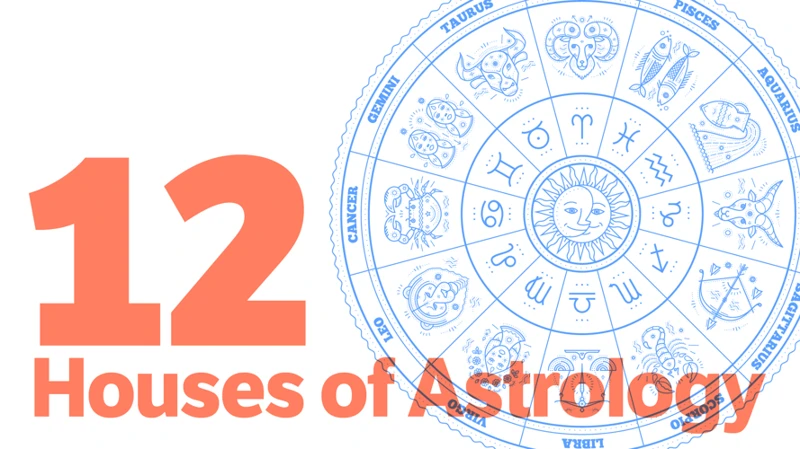
The Ascendant, as a central point in an astrological birth chart, holds a dynamic relationship with other astrological elements, offering a multi-dimensional understanding of an individual’s personality and life path. The Ascendant forms a significant connection with the Sun Sign, representing the core essence and ego expression, while the Moon Sign reflects the emotional needs and inner world. These three elements work together to shape an individual’s identity, with the Ascendant acting as the outward projection, the Sun Sign as the inner essence, and the Moon Sign as the emotional foundation. Additionally, the Ascendant interacts with the Midheaven, which corresponds to the individual’s public image and career aspirations. The Ascendant-Midheaven interplay provides insight into how one presents themselves to the world and the professional path they are likely to follow. By exploring the relationships between the Ascendant and these other astrological elements, a more comprehensive understanding of an individual’s character and life purpose can be obtained.
1. Sun Sign and Ascendant Connection
The connection between the Sun Sign and the Ascendant in an astrological chart is a dynamic interplay of energies that adds depth and complexity to a person’s personality. The Sun Sign represents one’s essential self, core desires, and ego expression, while the Ascendant signifies the mask one presents to the world and the physical appearance. When these two elements align harmoniously, it can enhance and reinforce certain traits, creating a powerful combination.
For example, if someone has a Leo Sun Sign and a Leo Ascendant, their confident and charismatic Leo nature will be amplified. They will exude a natural radiance, commanding attention wherever they go. The Leo Sun Sign’s desire for recognition and creative self-expression will be accentuated by the Leo Ascendant’s bold and vibrant presence.
On the other hand, when the Sun Sign and Ascendant are in contrasting signs, there may be a blending of energies or a subtle tension between the two. This can create a more complex and nuanced personality. For instance, if someone has a Virgo Sun Sign and a Pisces Ascendant, there might be a delicate balance between the Virgo’s analytical and detail-oriented nature and the dreamy, imaginative qualities of Pisces. This combination can result in a person who is both practical and idealistic, meticulous yet compassionate.
The Sun Sign and Ascendant connection influences not only the individual’s outward appearance and initial impressions but also how they express themselves and project their identity to others. This interplay can shape their overall demeanor, style, and mannerisms. Understanding this connection can provide valuable insights into how one presents themselves to the world and how they navigate their life experiences.
It’s important to note that while the Sun Sign and Ascendant connection can significantly impact a person’s personality, they do not represent the entirety of an individual’s astrological makeup. Other factors, such as the placement of other planets and the aspects between them, also contribute to the overall picture. Each person’s astrological chart is a complex tapestry of energies, with the Sun Sign and Ascendant forming just a part of the intricate pattern.
To gain a deeper understanding of the Sun Sign and Ascendant connection in your own birth chart, consulting with a professional astrologer or using online resources can be helpful. These resources can provide personalized interpretations and insights into how these two elements interact and shape your unique personality and life experiences.
Remember, astrology is a tool for self-discovery and personal growth. Exploring the relationship between your Sun Sign and Ascendant can provide valuable guidance and a greater understanding of your true self. Embrace the journey of uncovering the layers of your astrological chart and the beautiful complexities it reveals.
2. Comparing Ascendant and Moon Sign
When comparing the Ascendant and Moon Sign in astrology, we delve into two significant aspects of an individual’s birth chart that provide valuable insights into their personality and emotional nature. The Ascendant represents the mask we wear and the first impression we make on others, while the Moon Sign reveals our emotions, inner world, and subconscious desires.
First, let’s explore the Ascendant. As mentioned before, it signifies our outward personality traits and how we present ourselves to the world. It can manifest as the qualities we actively project and how we interact with others. The Ascendant highlights our physical appearance, mannerisms, and the initial energy we emit.
On the other hand, the Moon Sign represents our emotional needs, instincts, and intuitive responses. It showcases our innermost desires, feelings, and how we nurture ourselves and others emotionally. The Moon Sign is associated with our deep-seated emotional patterns, subconscious habits, and emotional security.
When comparing the Ascendant and Moon Sign, it is crucial to consider how they interact and potentially harmonize or clash with each other. The Ascendant’s qualities may influence the outward expression of a person’s emotional needs and instincts. For example, an individual with a Cancer Ascendant may appear nurturing and caring (Ascendant) while also seeking emotional security and stability (Moon Sign).
The Ascendant and Moon Sign can work together synergistically, creating a cohesive personality that aligns with emotional needs and values. However, conflicts between the two can also arise. For example, if someone has an assertive and independent Aries Ascendant, but their Moon Sign is in sensitive and indecisive Pisces, there may be a clash between their desire for independence and their need for emotional security.
Ultimately, comparing the Ascendant and Moon Signs can provide a deeper understanding of how an individual expresses themselves and navigates their emotional landscape. It offers insights into the balance or tension between their outward persona and inner emotional needs. Whether they align harmoniously or create contrasting dynamics, the interplay between the Ascendant and Moon Sign adds complexity and depth to an individual’s astrological profile.
Understanding the Ascendant-Moon Sign dynamic can enhance self-awareness and empathy, as well as improve relationships and emotional well-being. By embracing and integrating both aspects, individuals can develop a balanced and authentic expression of their personalities while honoring their emotional needs and desires.
3. Interplaying Ascendant and Midheaven
The interplay between the Ascendant and Midheaven in an astrological chart brings together two significant angles that provide valuable insights into an individual’s life path and public image. The Ascendant represents the persona one presents to the world, while the Midheaven, also known as the Medium Coeli (MC), symbolizes one’s public image, reputation, and career aspirations.
When the Ascendant and Midheaven interact, it offers a nuanced understanding of how an individual’s public image aligns with their true self and life purpose. The combination of these two angles can shed light on the career path that best suits an individual’s personality traits and life experiences.
The Midheaven represents one’s long-term goals, ambitions, and aspirations for professional success. It signifies the heights they aim to reach in their career and the achievements they strive for. This angle reveals the qualities and skills they bring to the public domain and how they manifest their individuality in their chosen vocation.
The Ascendant provides a lens through which the individual interacts with the world and presents themselves. It shapes their first impressions, physical appearance, and overall demeanor. When the Ascendant and Midheaven align harmoniously, there is a congruence between the individual’s authentic self and their public image. This alignment can bring a sense of ease and fulfillment in their professional endeavors.
On the other hand, if there is tension or challenging aspects between the Ascendant and Midheaven, the individual may experience a dissonance between their true self and how they are perceived in the public sphere. This misalignment can lead to a sense of frustration or difficulty in finding a fulfilling career path that truly resonates with their authentic self.
The interplay between the Ascendant and Midheaven can also reveal the public image an individual desires to cultivate. For example, someone with a Leo Ascendant and a Midheaven in Capricorn may project an aura of confidence, charisma, and leadership (Leo Ascendant) while aspiring to achieve success and recognition in a structured and established profession (Capricorn Midheaven).
Understanding the interplay between the Ascendant and Midheaven provides valuable insights into how an individual’s public image aligns with their true self, as well as their aspirations and ambitions in the professional realm. By embracing this knowledge, individuals can gain a deeper understanding of themselves and make informed choices that align with their authentic nature and life path.
Conclusion
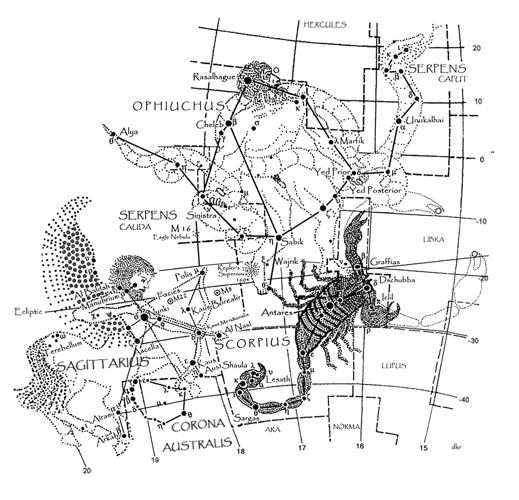
In conclusion, the Ascendant holds immense significance in astrological chart interpretation. It is a powerful indicator of our physical appearance, first impressions, and the mask we present to the world. With its influence on personality traits and individuality, the Ascendant shapes the core essence of our being. By determining the chart ruler, it provides insight into our life’s purpose and direction. The Ascendant also plays a role in shaping our life experiences and the paths we navigate.
Interpreting the Ascendant and its aspects allows us to gain a deeper understanding of ourselves and our place in the world. By understanding the sign on the Ascendant and analyzing its aspects, we can uncover hidden layers of our personality and potential challenges we may face. Factors such as the time and location of birth, along with whether the birth chart is of a day or night chart, also impact the Ascendant and provide further context to its influence.
In personal relationships, the Ascendant influences compatibility with other Ascendants, shapes attraction and first impressions, and affects relationship dynamics. In the professional realm, the Ascendant helps identify suitable career paths, express career ambitions, and navigate professional relationships.
The Ascendant’s relationship with other astrological elements, such as the Sun Sign and Moon Sign, offers deeper insights into our character and how we express ourselves. Comparing the Ascendant and the Midheaven illuminates our sense of purpose and public image.
Understanding the Ascendant allows us to unlock the mysteries of our birth chart and embrace the unique energies and potentials within us. By embracing our Ascendant’s qualities, we can navigate life with greater self-awareness, authenticity, and purpose. Whether you’re embarking on a journey of self-discovery or seeking to understand others on a deeper level, the Ascendant provides a powerful tool for unlocking the secrets of the cosmos.
For more information about unique traits and characteristics associated with the Ascendant, you can explore our article on “Unique Traits of Ophiuchus Individuals”.
Frequently Asked Questions
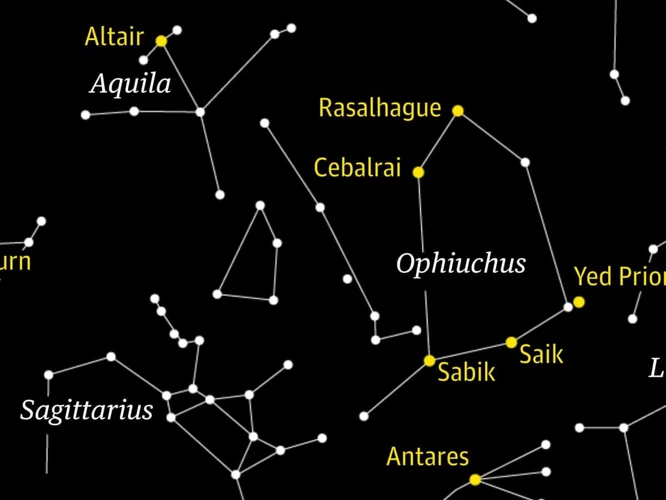
1. How does the Ascendant differ from the Sun sign?
The Ascendant represents the zodiac sign that was rising on the horizon at the time of your birth, while the Sun sign represents the position of the Sun at that moment. The Ascendant influences your outward persona and physical appearance, while the Sun sign reflects your core essence and life purpose.
2. Can the Ascendant change throughout a person’s life?
No, the Ascendant remains constant throughout a person’s life. It is determined by the time and location of birth and remains fixed, influencing various aspects of one’s personality and life experiences.
3. How does the Ascendant affect relationship compatibility?
The Ascendant can play a role in relationship compatibility by influencing first impressions and the initial attraction between individuals. Certain Ascendants may naturally harmonize or clash with others, contributing to the overall compatibility between two individuals.
4. Can two people with the same Ascendant have completely different personalities?
Yes, even individuals with the same Ascendant can have distinct personality differences due to other factors in their birth chart, such as the placement of other planets and aspects. Although the Ascendant influences certain traits, it is just one piece of the astrological puzzle.
5. How does the Ascendant influence career choices?
The Ascendant can provide insights into suitable career paths by highlighting the traits, talents, and energies that an individual may naturally possess. It can also shed light on the type of work environment and professional relationships that best align with their personality and aspirations.
6. Can the Ascendant determine physical appearance?
While the Ascendant does influence physical appearance, it should not be taken as the sole indicator. Other factors in the birth chart, such as the aspects and placements of the ruling planet and other significant planets, also play a role in shaping an individual’s physical attributes.
7. Does everyone know their Ascendant?
Not everyone is aware of their Ascendant since it requires an accurate time and location of birth to calculate. However, if you have your birth chart calculated or consult with an astrologer, they can determine your Ascendant for you.
8. Can the Ascendant change the way others perceive you?
Yes, the Ascendant can greatly impact the way others perceive you. It influences your first impressions and the energy you radiate, shaping how others see and interact with you.
9. Does the Ascendant have any influence on health or well-being?
The Ascendant itself does not directly influence health or well-being. However, it can shed light on certain predispositions or tendencies that individuals may have in relation to their physical well-being. Other factors in the birth chart, such as the sixth house and its ruling planet, provide deeper insights into health matters.
10. Can the Ascendant override other astrological placements?
No, the Ascendant does not override other astrological placements. It is a significant factor in chart interpretation, but all elements of the birth chart work together to create a unique and nuanced astrological portrait.
References
- What to know about your Rising sign and why it is more …
- Why You Should Read Your Rising Sign’s Horoscope Too
Frequently Asked Questions

1. How does the Ascendant affect physical appearance?
The Ascendant plays a significant role in determining an individual’s physical appearance. It influences features such as facial structure, body type, and even the way they carry themselves.
2. Can the Ascendant reveal traits that are not present in the Sun sign?
Yes, the Ascendant can reveal additional personality traits that may not be immediately apparent in the Sun sign. It adds a layer of complexity and uniqueness to an individual’s character.
3. Why is determining the Chart Ruler important?
Identifying the Chart Ruler, which is the ruling planet of the Ascendant, is crucial as it provides insights into a person’s overall life direction, motivations, and behaviors.
4. How does the Ascendant shape life experiences?
The Ascendant influences the external circumstances and experiences that individuals attract into their lives. It sets the stage for personal growth, challenges, and opportunities.
5. What does it mean to understand the sign on the Ascendant?
Understanding the sign on the Ascendant allows for a deeper comprehension of an individual’s approach to life, their natural inclinations, and how they portray themselves to the world.
6. How do aspects to the Ascendant affect personality?
Aspects to the Ascendant provide further insight into an individual’s personality. Harmonious aspects can enhance positive traits, while challenging aspects may present obstacles or areas of growth.
7. How does the time of birth affect the Ascendant?
The time of birth is crucial in calculating an accurate Ascendant sign and degree. Even a few minutes of difference can result in a shift in the Ascendant and alter the entire interpretation of the birth chart.
8. What role does the location of birth play in determining the Ascendant?
The location of birth affects the Ascendant by determining the latitude and longitude, which are key factors in calculating the precise zodiacal degrees and signs at the time of birth.
9. What is a day/night chart, and how does it relate to the Ascendant?
A day chart has a Sun above the Ascendant, while a night chart has a Sun below the Ascendant. This distinction influences the overall chart interpretation, including the emphasis on certain areas of life.
10. Can the Ascendant affect compatibility in personal relationships?
Yes, the Ascendant can play a role in compatibility with other individuals. It can influence the initial attraction and overall dynamics in personal relationships, adding depth and nuance to the connection between individuals.
References
- What Your Rising Sign in Astrology Means
- The Ascendant (Rising) Sign Meaning in Astrology
- Rising Sign: What Is It, and What Does It Mean?







